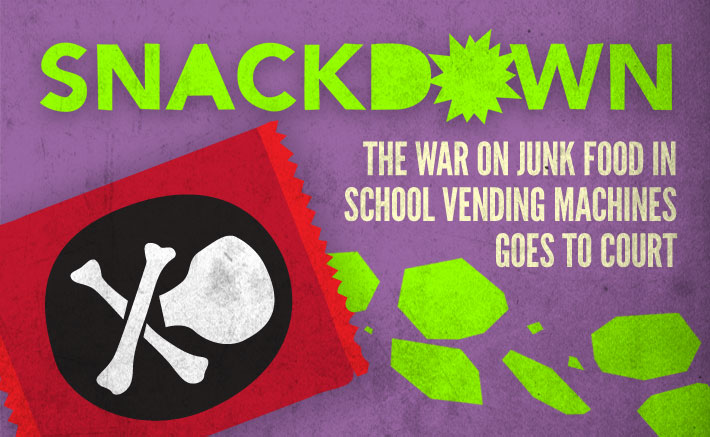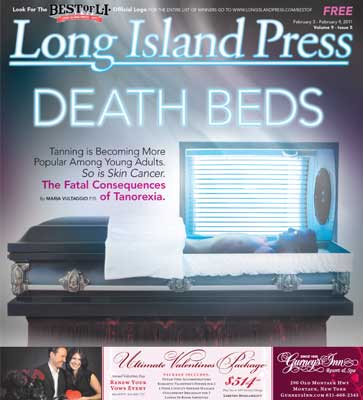
Dover, the plaintiffs in the Levittown lawsuit, is widely believed to have the most school vending machine contracts across the Island, including several school co-operational bidding arrangements. But they are not alone in the local market that has competition big and small.
According to the Press’ analysis, which included more than 30 vending machine contracts throughout school districts in both Nassau and Suffolk: Some vending contracts are for just snacks or beverages, while others include both. Percentages vary on how much of the profits districts and companies split—anywhere from 15 to 47 percent. Unlike the heavily regulated school breakfast and lunch providers, many vendors sweeten the pot with bonuses for extending contracts and other incentives. There are also early termination penalties.
A 13-year Pepsi Bottling Ventures contract with the Lindenhurst Union Free School District that runs through 2016 provided new football field lighting, a scoreboard, $4,500 for a Steeple Chase and $5,000 annually for scholarships, for example. But there’s a catch.
“No new permanent or temporary advertising, signage or trademark visibility for Competitive Products shall be displayed anywhere on the Campus, (both) High School and Middle School, including locker rooms, sidelines and players benches,” the contract reads.
That means no Coke logos allowed in Lindenhurst schools.
In recent years, a number of local districts have let contracts expire with Pepsi and Coca-Cola vendors. Those contracts often included some of the sweetest perks for the schools, often in exchange for similar exclusivity with beverages served on campus.
Some of the school districts that let their Coke contracts expire include Lynbrook, East Islip and Jericho. In some districts, the soda machines are only allowed in faculty lounges.
“Most schools are moving away from sponsorships, but some still do it,” says Murn of Answer Vending, which has a few LI school contracts among their 10,000 machines across the tri-state area. School districts his company serves include Northport, Long Beach, Sewanaka, Smithtown and Patchogue-Medford.
“Long Island districts have gotten very tough,” he notes. “Most of the schools in the last five years have eliminated totally soda sold to kids.”
The American Beverage Association, a trade group that represents Coke, Pepsi and others, says its members are voluntarily transitioning from serving full-calorie soft drinks in schools to water, diet drinks and juices.
They’ve also been marketing portion-controlled sports drinks such as Gatorade—a beverage battle far from over between coaches who see it as an athletic necessity and advocates who argue it’s also filled with sweeteners.
ARAMARK, a Syosset-based food service company, has a 7-year contract with the William Floyd School District that expires next year. That deal is padded with thousands of dollars for scholarships and other fees, too.
Some smaller school districts, such as those on the East End, don’t have a contract for their vending machines. Instead, a member of the faculty or staff fills the machines and the proceeds go toward students’ after-school activities.
Of course, in the past five years, the upstart My Healthy Thing has grown as districts came to embrace the healthy vending machine approach. And manufacturers made it easier for the likes of Answer to provide more whole grain snacks than had been previously vending-machine ready.




